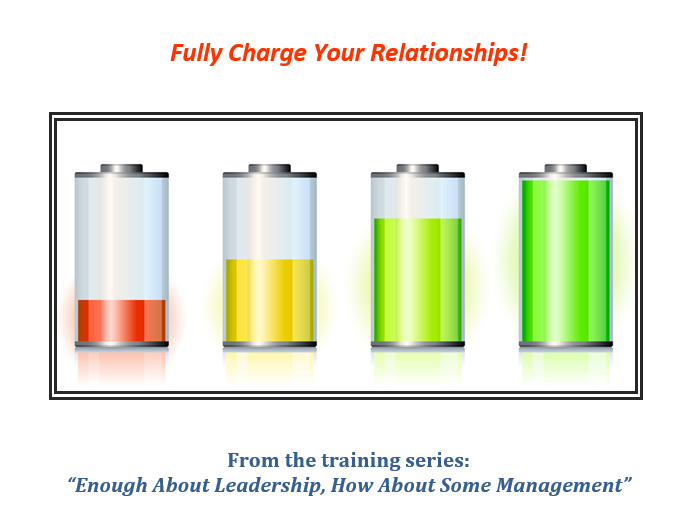July 20, 2020
Barriers to Effective Relationships
In our workshop entitled “Building Effective Relationships with Staff and Congregation Members,” Miller Management’s team examines how to fully charge your relationships.

Car Engines and Batteries
For starters let’s imagine a ministry is akin to a car engine. Then, perhaps, relationships in ministry would be the battery that starts the ministry engine and keeps the ministry running smoothly. A short circuit, a weak cell, or a dead battery prevents the engine (read: ministry) from operating correctly.

During the workshop we outline four different batteries, a couple case studies, and provide practical applications for your ministry. Today, we want to take a glance at the second cell in the battery: Managing Expectations.
Managing Expectations vs. Reality
We have all experienced stressful relationships, but what are some of the root causes of this stress? One significant area of stress, relating to relationships, is unmet or unrealistic expectations we place on others or in our relationships.

Some examples might include the difference between:
- an engaging and humorous Sunday morning Pastor is not how they come across in a one-on-one setting
- a new children’s director hire isn’t as friendly as the last director the church had
- the new volunteer coordinator said this new ministry won’t take up “too much time”
The congregant or volunteer is disappointed after the scenario plays out. As you can imagine. What was the root cause of their disappointment? Unmet or un-managed expectations!
Click to tweet that quote: https://ctt.ac/89hBV
3 Ways to Overcome Barriers
The biggest lesson for this section is the steps to overcome those barriers. While they may not seem ground-breaking, most of us still struggle to do these things ahead of time.
- Set Clear Expectations
- Monitor the Gap
- Manage and Control Your Own Expectations of Others
But the good news is, we can learn from our mistakes and re-frame our expectations for next time. Even if you think you are a pro at handling all three of these, we suggest going back to your latest event and asking the person how well you did.

Whether that be asking your newest hire how the on-boarding process actually worked, or talking to some volunteers or congregants about the new project or new hire for your church. The point is to create a healthy perspective and figure out how you can do better in the future.
See our related post: Personality Styles
Going Forward
We know right now may seem increasingly difficult to manage expectations during a very fluid time. The more we can lessen the gap between reality and expectations, the better we all will be.
Have a plan in place, communicate the plan confidently, and realize it still may not go according to plan. But that’s alright, because you are a confident manager and can handle thwarted expectations when they arise.
See our related post on providing clear guidelines through Ministry Descriptions.
To wrap up, when you are ready to learn more about the other “cells in the battery” see our course page on Building Effective Relationships with Staff and Congregation Members to find out how MM can help. Also included in the workshop are examples we’ve seen over the course of our consulting work from the last few decades.
Stay Connected